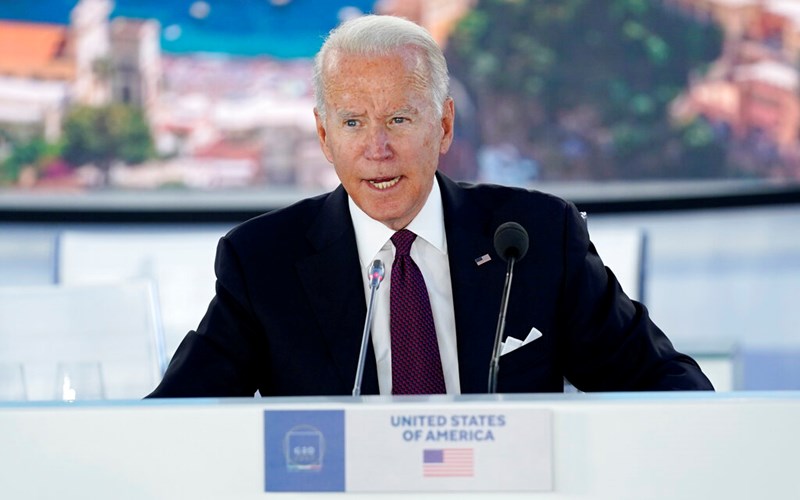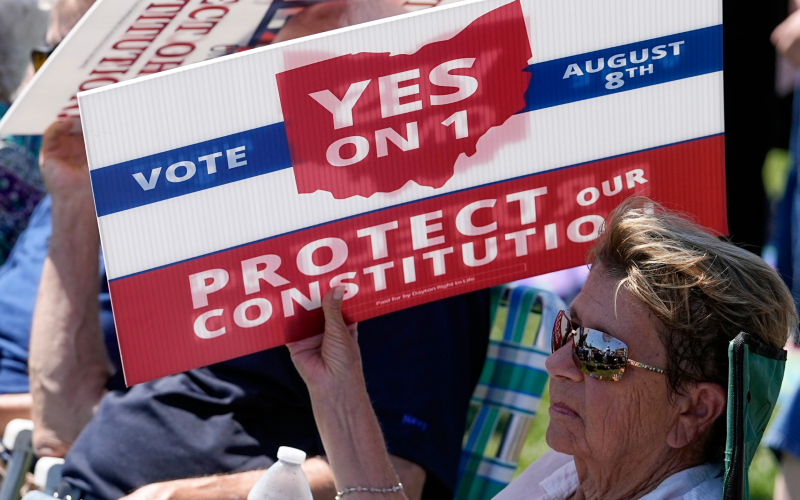The National Emergencies Act (NEA), enacted in 1976, provides special powers to the president. For years, that legislation seemed reserved for natural disasters. Many of the special powers it bestows might appear reasonable in special circumstances, but sometimes reason is in the eye of the beholder.
 For example, during an emergency the president can cut off telecommunications or freeze Americans' bank accounts. He can also deploy troops to prevent civil unrest. Donald Trump in 2020 declared a national emergency because of the COVID-19 pandemic. Joe Biden didn't end it until April of this year, long after most of the nation had returned to normalcy.
For example, during an emergency the president can cut off telecommunications or freeze Americans' bank accounts. He can also deploy troops to prevent civil unrest. Donald Trump in 2020 declared a national emergency because of the COVID-19 pandemic. Joe Biden didn't end it until April of this year, long after most of the nation had returned to normalcy.
Every time a newscast talks about an emergency, it's not an official emergency that would fall under the NEA. It can get confusing, even when the president is involved.
Biden this week told The Weather Channel that he has declared a national emergency "practically speaking" with respect to climate change.
"We've already done that," he said before listing climate achievements. "It is the existential threat to humanity."
Climate emergency talk isn't new
Biden, in fact, has been talking about declaring a climate emergency for a year.
"Doing so would allow the Biden administration to rapidly develop a bold array of different rules that would simply impose enormous burdens upon private industries. We're watching a rash, if you will, of emergency declarations all over the government. We're watching on the federal level, the state level, all over the place," said Jody Hice on Thursday's airing of Washington Watch.

"When you start hearing phrases like 'state of emergency' popping up for other than legitimate reasons, it should raise a red flag. What happens is the creation of a crisis – and then the grabbing of power."
Hice, who represented Georgia's 10th district (January 2015 - January 2023), served eight years on the House Oversight Committee before joining the Family Research Council as a senior advisor.
"I watched personally during the pandemic the Democrats take charge of saying 'We have a health emergency, and therefore we need to change election laws.' So, we take this 'emergency' and say it's an emergency that now demands that we change election laws – and of course we saw so many problems with that," said the former Georgia lawmaker.
Election laws weren't the only suspect legislation passed by Democrats under the guise of an emergency. Sen. Ted Cruz raised this concern from the Senate floor in 2020.
"Because all the people are out of jobs the Democrats are using this to push, and what are they pushing for? Changing the emission standards on airplanes. Mr. President, what do the emission standards on airplanes have to do with thousands of people dying and millions of people out of work in the coronavirus epidemic?" Cruz said while addressing the Senate.
In other examples:
- In 2021, then-New York Gov. Andrew Cuomo (D) declared a state of emergency because of gun violence.
- Cori Bush (D-Missouri) in March suggested it was time for a national public health emergency on the gun violence.
- Earlier this week, New York City Mayor Eric Adams (D) asked the White House to declare a state of emergency because of surge of immigrants from the southern border arriving in his city.
- Elizabeth Warren (D-Massachusetts) was briefly a presidential candidate for the 2020 race when she told a late-night talk show host it was time to declare emergencies for climate change, gun violence and student loan debt.
The emotional weight of misusing 'emergency'
Dr. Jennifer Bauwens, FRC's director of the Center for Family Studies, argues it's not healthy when the word "emergency" is used out of context.
"It minimizes those true emergencies while generalizing every experience to the level of an emergency. That promotes fear. People aren't psychologically ready to respond to a state of emergency because everything's an 'emergency,'" she told Hice.

"That's a problem," Bauwens continues. "We saw that with Hurricane Katrina and the other hurricanes that preceded Katrina. People had heard those warnings, and it didn't turn out to be that bad. Some people stayed during Hurricane Katrina, and we know the unfortunate results of that."
In addition to the psychological impact, Bauwens said this type of fearmongering from elected leaders is dangerous.
"Fear cries out for an answer. It is asking for someone to take control over a situation that feels very much out of control," she explained. "There are too many people in Congress who are all too happy to take that power away from individuals and from the nation itself."
Hice recalled that while serving in Congress, he noticed key differences between Democrats and Republicans.
"It seemed to me that every day Nancy Pelosi woke up, she had one thing on her mind, and that was to advance her agenda," he shared. "Republicans, on the other hand, tend to be more focused on things like elections. So, we want to win an important election – and we need to win – but let me tell you: at the end of the day, the one who moves the agenda wins. The one who moves the agenda changes the trajectory of the entire country."
Hice is convinced Democrats have a plan in place right now to change that trajectory through "emergencies."
"We're watching various tools being used for the purpose of disregarding legislative bodies and granting executive authority to move a liberal agenda forward," he concluded. "Such is the case more often than not, it seems these days, with the state of emergency."







